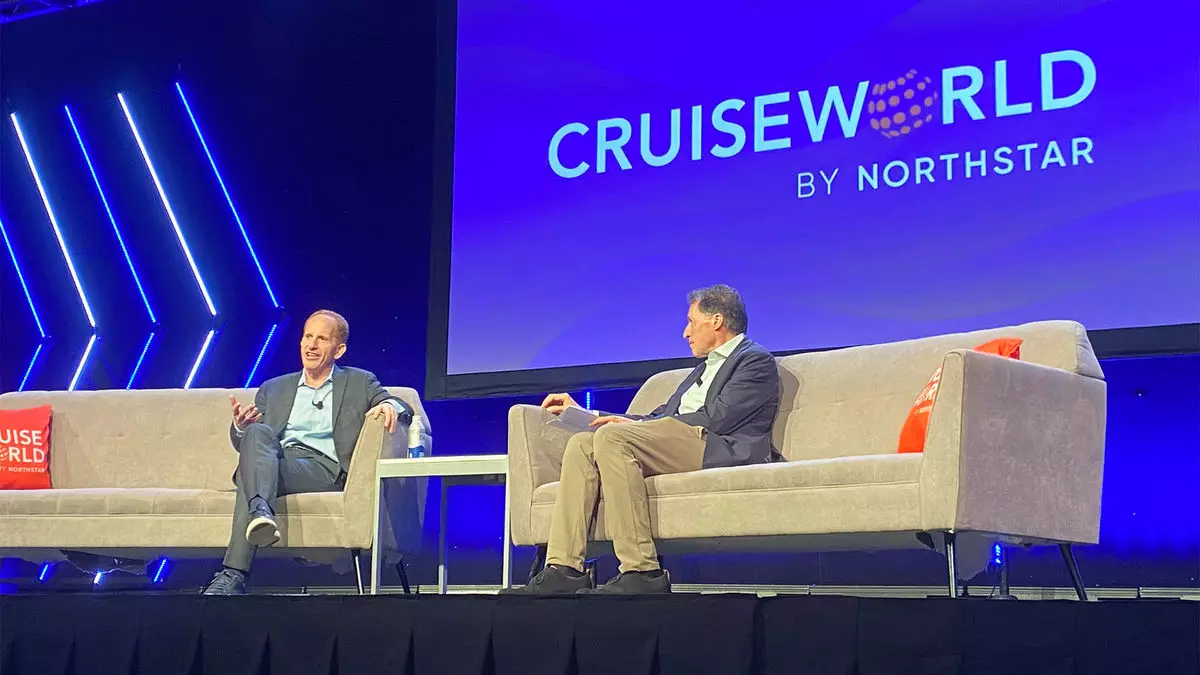In an era where customer satisfaction reigns supreme, Norwegian Cruise Line Holdings (NCLH) has introduced a groundbreaking concept known as “return on experience” (ROEx). Revealed at the company’s recent Investor Day, ROEx aims to elevate the cruise experience by focusing on guest-centered engagement rather than the traditional measure of return on investment (ROI). CEO Harry Sommer articulated this shift during a panel discussion at CruiseWorld, emphasizing a need to redefine success in the service industry.
At the heart of this new direction lies the contrast between the philosophies of previous CEOs at NCLH. Kevin Sheehan’s approach was primarily financial, emphasizing the need to maximize monetary returns. His mantra was effectively a simple but narrowly focused: “spend a penny here and get two pennies back.” This method, while effective in optimizing profitability, often overlooked the nuances of customer pleasure and engagement.
On the other end of the spectrum, Frank Del Rio, Sommer’s mentor, championed the creation of extraordinary guest experiences. However, this dedication sometimes led to the introduction of features that did not resonate with the customer base. Sommer cited the sculpture garden on the Norwegian Prima, an aesthetic addition that, while visually appealing, didn’t align with the preferences of typical cruise-goers. This example encapsulates the dilemma that companies often face: seeking elegance in design while risking disconnection from customer needs.
With ROEx, NCLH aims to harmonize the rigorous financial aspect of cruising with enriching, memorable experiences. The intent is to marry what guests want with what the company can deliver efficiently. This pivotal shift is not only an operational change but a cultural awakening. NCLH is now invested in offerings that guests genuinely value, ensuring that lavish additions feel relevant and impactful.
The strategy to inform this approach rests on insightful data analytics. By leveraging customer feedback and satisfaction scores, NCLH can accurately identify experiences that guests are willing to pay for, refining their offerings to serve modern expectations. Sommer illustrated this cultural shift with a personal anecdote from his first week as CEO, where his inquiry into meal orders was met with surprise from the team—a sign that the focus on guest preferences had not always been prioritized before.
As NCLH continues to evolve under this new framework, the emphasis on ROEx marks a significant shift in the cruise industry. This initiative not only aims for profitability but also seeks sustainable growth through fostering deeper connections with customers. The challenge remains: to ensure that future developments resonate with a diverse clientele without losing sight of operational efficiency.
In essence, ROEx goes beyond being a mere buzzword; it represents a vital leap towards a more customer-centric paradigm in cruising. By re-evaluating the intersection between pleasure and profitability, NCLH is setting a new standard for what it means to deliver a truly exceptional vacation experience. As the industry watches closely, the success of this approach could very well redefine the essence of cruising in the years to come.

